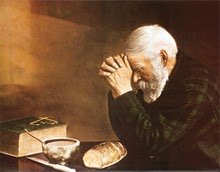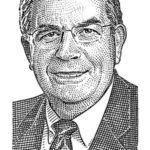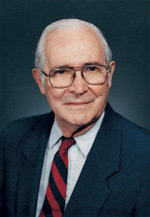 Article by Dane Ortlund (original source here)
Article by Dane Ortlund (original source here)
. . . all your breakers and your waves have gone over me. Psalm 42:7
Every seasoned saint who walks deeply with God, I am coming to believe, has been through a very distinct experience.
I could call the experience ‘adversity’ or ‘suffering’ and that would be true but unhelpful. I have in mind something more specific, more comprehensive.
I have in mind the experience of God’s children when they walk through the deep valley of a single instance of adversity or suffering so great that it cannot be handled in the same way as the various disappointments and frustrations of life. This particular adversity passes a threshold that the garden variety trials do not reach.
An Over-the-Head Wave
I think of swimming in the ocean of Laguna Beach in southern California on family vacations years ago. Wading out into the water I would immediately feel the waves beginning to come against me. First my ankles, then my knees, and so on. As I continued, though, inevitably a wave would come that could not be outjumped. It washed over me. I’d get completely submerged and there was nothing I could do to avoid it. The wave would send me tumbling head over heel underwater. Total disorientation.
That total-submersion wave is what I have in mind. I’m not thinking of bad grades, failed dating relationships, rejected applications for school or jobs, a dear friend moving away, a fender bender, the flu. These are forms of adversity. But they are waves that hit us in the knees. We lose our balance, but quickly get it back. We keep walking, weathering the trial but essentially unchanged. We aren’t forced to change. Such trials wash into all of our lives with some regularity.
But those who live into their 50s, 60s, 70s, 80s and are quietly walking with the Lord from a posture of fundamental trust have weathered something deeper. At some point in their lives a wave has washed over them that could not be outjumped. And somehow they survived emotionally. They softened rather than hardened.
Finally Believing What We Say We Believe
Someone who has become a Christian and truly believes what he or she confesses to believe comes to a point in life where they must suddenly, for the first time, bank all that they are on that professed belief. Their true trust must be proven.
It is not as though they didn’t believe before. They did, sincerely. But their belief had only to that point been tested by the gently lapping waist-high waves of adversity.
At that moment of life meltdown we are forced into one of two positions: either cynicism and coldness of heart, or true depth with God. A spouse betrays. A habitual sin, left unchecked, blows up in our face. We are publicly shamed in some way that will haunt us as long as we live. Identity theft empties all our accounts. Our good name is stolen. We hear words from the lips of a son or daughter that had only been the stuff of nightmares. A malignant, inoperable tumor. Abuse of a loved one, the kind of abuse that makes us physically nauseous to think about. Sustained, inexplicable depression. Profound disillusionment in some way. Life goes into meltdown.
A Universal Experience
When I consider the saints I know who exhale that depth of trust that makes them almost otherworldly, it seems like there has always been a time of weathering a wave of adversity that went over their head.
In light of what we find in Scripture, what else would we expect?
Abraham is told to slit the throat of his only son. Jacob wrestles with God and is crippled the rest of his life at just the moment when he needed God most, about to meet Esau. Moses kills a man and loses everything the world holds dear. David ruins his life through an afternoon’s indulgence. Job reaps the nightmare of all nightmares. Jeremiah, Hosea, John the Baptist, Peter, Paul–more of the same.
When that moment comes looking for us, sent by the hand of a gentle Father, we will either believe that what we said we believe has just been disproven, or we will believe that what we said we believe will sustain us. The two lines of professed-belief and heart-belief, to this point parallel, are suddenly forced either to overlap completely. We must bank on our creed, or let our hearts cool and harden. We cannot go on as before.
It’s the difference between saying you believe a parachute will float you safely to the ground and actually jumping out of the plane.
Let us not be simplistic or formulaic. Many such over-the-head waves may wash over us in life. Or we may experience a crushing trial in our 20s–then another in our 40s that makes the trial 20 years before seem only waist-high–and so on. God leads each of us in his own way. No two journeys are identical. But I remain struck at how often it seems to have been one defining, devastating blow when a senior saint reflects back on life.
The Tragedy of Shallowness
I know Christians in the latter half of life who are not deep people. They are dear people. But they are shallow.
If they will take off the mask and be truly honest, they will acknowledge that what they are after in life is a solid 401k, health, and being liked. Nothing wrong with any of these things. But these have seized their heart’s deepest loyalty. As a result they are not compelling men and women. Not magnetic. They are wispy, not solid. They are nice but frothy.
Could it be that at some point a wave came crashing over their head and they believed that their creed had just been disproven? That they concluded, “Well, I guess after all God was not as good as I thought he was.” Could it be that the very moment which they now look back on and view as the moment when God failed them was the Father inviting them into his deepest inner heart?
Might it be that the Lord stands as ready as ever to welcome them into depth, into a communion with him more sublime than they knew was possible, and that it is just on the other side of giving in and banking everything on him?
He Went through the Wave
Recognition of the strange ways of the Father should not drive us into a fearful, darting-eyes day-to-day existence. Recognition of his ways should simply sober us, encouraging us not to throw in the towel when the nightmare becomes reality.
He is in it. He loves us too much to let us remain the shallow, twaddling people we all are and will remain as long as the waves only reach our waist. Sometimes I hug my kids so hard they yell “Ouch!” The loving squeeze of the Father’s arms are painful, but it is the pain of a Father’s love. It is when pain sweeping us off our feet in total disorientation that God is loving us most.
How do we know? How do we really know?
Because he proved it. In flesh and blood, before our very eyes. His own dear Son joined us in the haunted misery of this broken world. The dark bottom of the valley is where Jesus lives. He dwells in the waves.
But more than that. He not only experienced what we experience, with us. He walked through the greatest nightmare himself, for us. The tidal wave of true separation from the Father washed over Another so that it need never wash over us.
And so we are assured, when life implodes, that we have never been safer. We are being invited further up and further in.







